Hell in the Highlands: The men infiltrate the Korean camp
- By George Hand
Share This Article
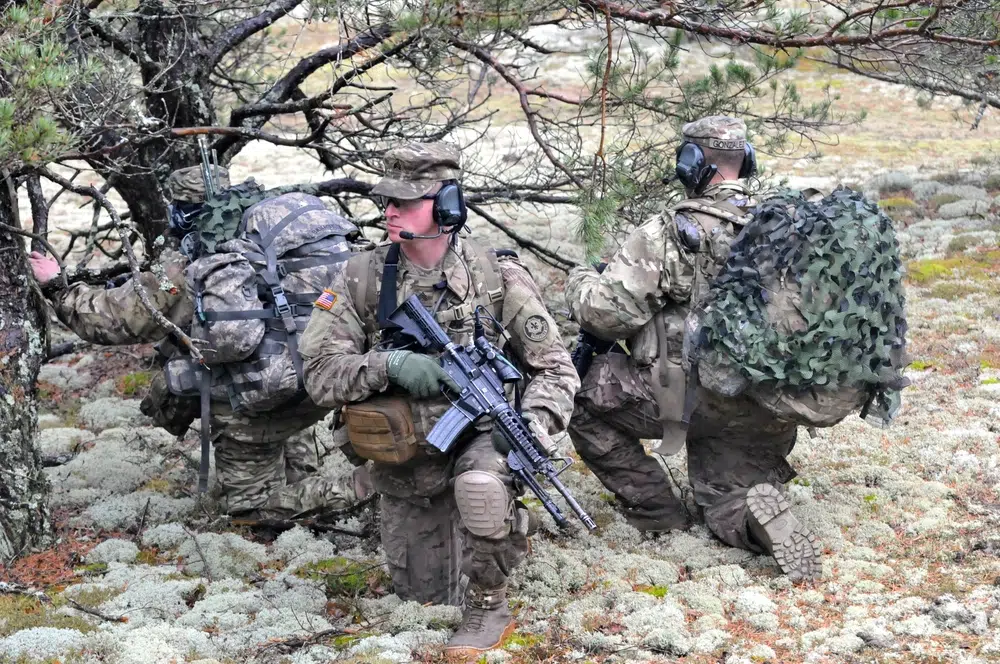
Editor’s Note: You can read Part I of “Hell in the Highlands” here.
The three-man patrol that would recon the Korean target consisted of myself, Henri the Third, and Sath, also known as Henri the Tenth, our team sergeant. You know what they say about leading by example… Sath lived that principle; truly one of the best leaders I ever met in the Green Berets.
We departed the Forward Support Base (FSB) stripped down of all our kit to just our combat blouses and trousers, socks and boots, and elbow/knee pads in order to make this a fast and light penetration into the enemy’s backyard. All we needed to be mission-successful was to get in undetected, get eyes onto the Korean hardware hidden under camouflage nets there, and try to get numbers o the various vehicles.
We were also feeling our oats and brought along a half dozen white-phosphorous grenades in case we wanted to destroy enemy vehicles too – although that wasn’t part of the mission criteria.
We wore olive drab scarves for our heads and neck and carried two quarts of water on our backs each and seven magazines of ammunition on our sides in pouches for our AR assault rifles. Henri the Third carried one radio for line of sight (LOS) radio communication with our support group halfway down the mountain.
After catching some modest shuteye, we woke up under an overcast sky as the sun was coming down. We had a lot of distance to cover to the objective’s location in the Korean mountains.
Related: Combat swimmer operations and their importance in a near-peer conflict

As we droned on, I began to hang my head due to the stress of climbing. I couldn’t even look where we were going let alone watch out for our Korean enemy… I was nothing more than an unreliable piece of dung by that time.
But suddenly, I heard what sounded like a vehicle door slamming shut followed by the sound of Korean.
I twisted about to look at Sath, who was already looking at me and pointing to his ear with an index finger meaning, “Listen, do you hear something, I hear something.” Then he motioned with both arms stretched out which meant “Lay down flat on the ground and be quiet.” That was our finest hour.
For the rest of the mission, we were going to be on our bellies crawling and mostly listening, straining our eyes to take in all available forms, shapes, and structures. Each of us had a notebook and pen with a fingertip flashlight with a red lens – things that Sath wanted us to have and had provided to us all.
We finally arrived at the target area. We separated and spent nearly three hours snaking our way through the whole of it, ducking Korean guards and doing our best to make as little noise as possible while we took in as many pieces of intelligence as we could. I even sketched a few cartoons that we posted in the yard on various vehicles.
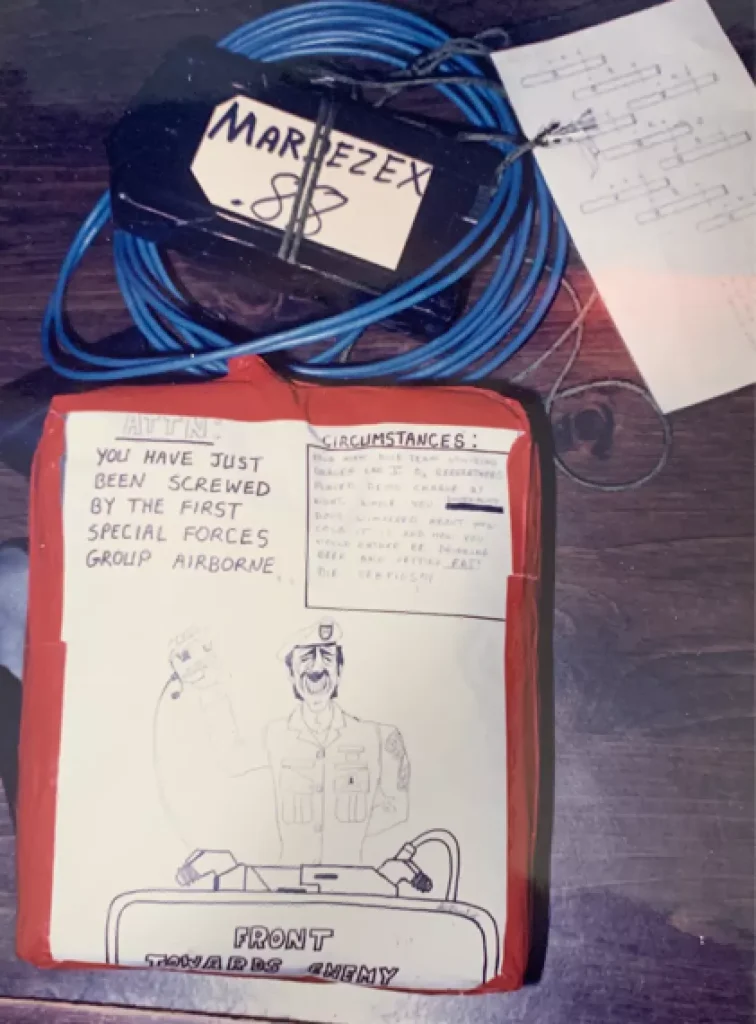
Toward the morning of the next day, we linked up to share data. We had identified a barrack, medical clinic, chow hall, HQ building, and a modest pub for off-duty Korean soldiers who wanted a sukoshi.
Now, we, the three sad sacks, lay the million-dollar question: “Do we or don’t we try to Willy-Pete some off the vehicles?” “We do!” Sath blurted out in an almost not-whisper.
We decided to combine our three white phosphorous grenades and attack a single former Soviet Block T-72 “Ural” Main battle tank. That meant we all had to move to the tank’s rear (its weak spot) and throw the grenade as closely together as possible.
With some hardy pop-pop and fizz-fizz we launched all three grenades and went into our exit strategy of “run like hell and don’t stop until you are at the FSB.” After some running, Sath changed direction. I tapped Henri the Third and asked him what the Son of Sam was going on with Sath.
“He’s breaking up our tracks so the Koreans can’t follow us and step on our heads while we are sleeping.”
“Sleep? Who the hell has time to sleep in Saloth Sar’s plantation?” I replied. And that was all just me being a big fat whiney baby about sleep.
When we made it back to the FSB, our other eight team members were already packed up and ready to – hopefully – exfiltrate by Blackhawk helicopters. That would be a sweet ride as long as it actually happened. Korea was just a poor service gestation for us Delta Pukes. Many, if not most, of our requests for support, just had not materialized so far, but we kept our hopes up nonetheless.
Related: 3 pieces of special operations gear that give troops ‘super powers’

The exfiltration route Sath set for us was again another odd trek which was intentionally off-course and confused us. After some time, we finally, halted for a break under some thick trees. Sath told me to come with him. We left the tree cover and immediately noted the phone wires strung up some 60 feet off of the ground.
“I just wanted us to have a final look at this swath where they said they lost the warrant officer. Let’s get a final inspection for signs of our lame-brained Henri the Eleventh,” Sath said. We walked the parcel taking in any and all signs of the chief that we could muster, however, it came to nothing.
By the time evening rolled around it was time to stop searching for Henri the Eleventh and make our way to the Landing Zone (LZ) to wait for the Blackhawk helo. Come night and the right hour we heard the thunderous *WOP-WOP* of the Blackhawk’s rotors slicing the sky. T’was a glorious sight to see, as our last requested Blackhawk looked suspiciously like a 2.5-ton cargo truck with no covering canopy on it.
The pilot’s microphone crackled alive to Sath’s headset: “Hey! Is this guy out here running toward my Hawk one of your guys??” the Blackhawk’s pilot asked.
“I don’t know… is he wearing a full beard and black pajamas? No, that’s Nick Rowe,” Sath replied.
Ten flashlights beamed simultaneously and in unison lit up the running fool – it was at last Henri the Eleventh, our warrant officer! Without breaking his stride he flopped into a barely empty spot on the chopper. The chopper then lifted off slowly with its 11-man load.
“And so… chief… what the hell already?!?”
As it turned out, the chief had done a generous amount of poor steering and gotten himself caught up in some phone lines. He claimed to have moved to and found the post-dump assembly area but that nobody was there. Ten sets of eyes rolled simultaneously.
“Christ, chief… we liked you a little better when we all thought you were dead,” I said. My remark created a scowl on Sath’s infinitely reddish face.
Related: A crash course in survival gear from a Delta Force legend
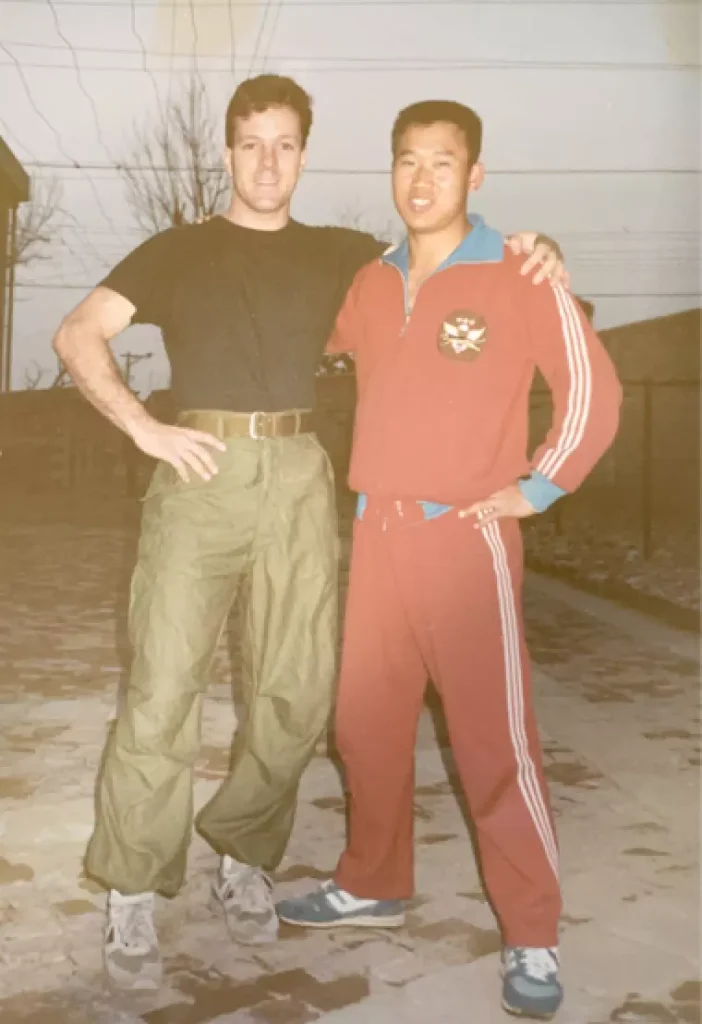
Chief just wanted us to be proud of him and congratulate him for surviving a prisoner-of-war scenario. He had gotten on a hamlet road and walked to a small village where the people were pro-American and treated him like a king. They fed him, got him his own bed in a tiny room, and he sat in the evenings with the home’s owner and had Maek Ju (beer).
Chief built no airplane from scraps found in the barn and flew it to safety across the American/ROK lines. There would be no Bird Chief of Alcatraz. All the bravado the Chief had was to flail from the dinner table, napkin still tucked into the collar of his shirt.
“I felt like kicking him out of the chopper,” Sath later lamented, “Ahhh but then there would be a ton of forms to fill out from the morgue’s office”.
“Let’s just try and enjoy the ride back, Sath… feel that cool air rushing in? It’s all good, I tells ya… it’s ALL good!
By Almighty God and with honor,
geo sends
Read more from Sandboxx News
- Marines are training to provide security for commercial ships in Middle East
- Iliff Richardson’s efforts against the Japanese in the Philippines were so impressive that he earned medals from both the Army and Navy
- This former Marine Cobra pilot saw combat in Afghanistan. Now, she’s commanding her first space mission
- Operation Acid Gambit: Panama, Noriega, and a CIA man
- America’s AI-controlled XQ-58 Valkyrie flies air combat exercises
Related Posts
Sandboxx News Merch
-

‘AirPower’ Classic Hoodie
$46.00 – $48.00 Select options This product has multiple variants. The options may be chosen on the product page -

‘Sandboxx News’ Trucker Cap
$27.00 Select options This product has multiple variants. The options may be chosen on the product page -

‘Kinetic Diplomacy’ Bumper Sticker (White)
$8.00 Add to cart
George Hand
Master Sergeant US Army (ret) from the 1st Special Forces Operational Detachment-Delta, The Delta Force. In service, he maintained a high level of proficiency in 6 foreign languages. Post military, George worked as a subcontracter for the U.S. Department of Energy (DOE) on the nuclear test site north of Las Vegas Nevada for 16 years. Currently, George works as an Intelligence Analyst and street operative in the fight against human trafficking. A master cabinet-grade woodworker and master photographer, George is a man of diverse interests and broad talents.
Related to: Special Operations
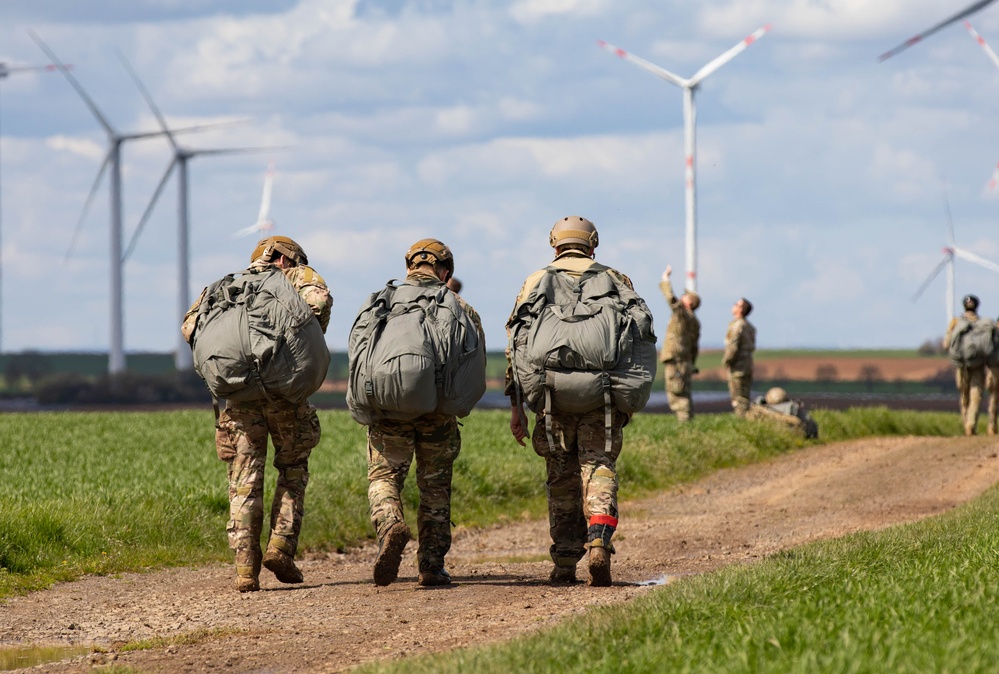
Congress demands answers on low testosterone issues among special operators
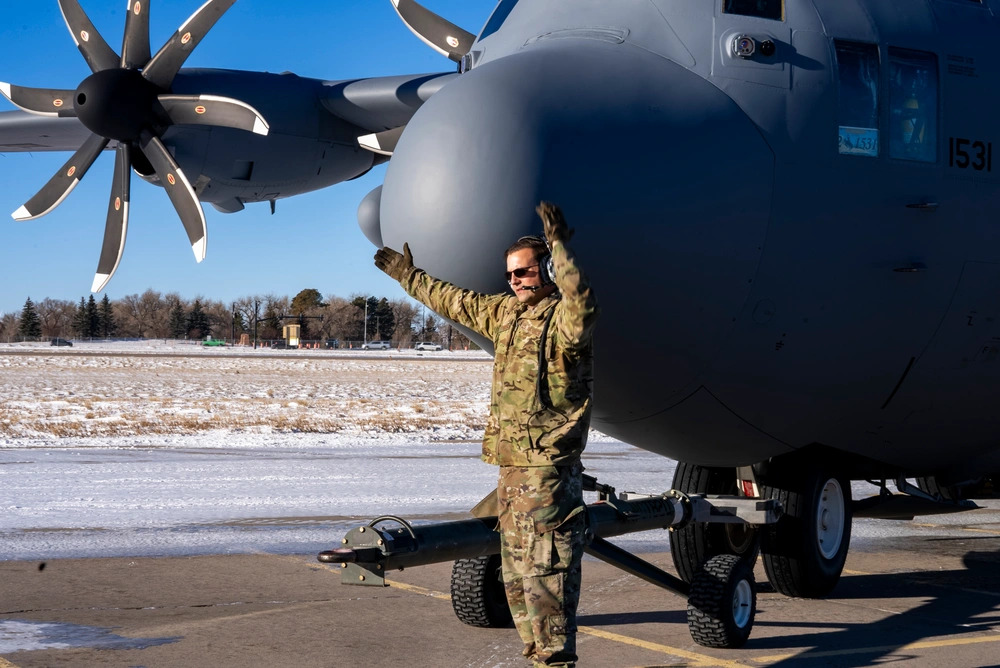
Video: US military sends aircraft to help with LA fires
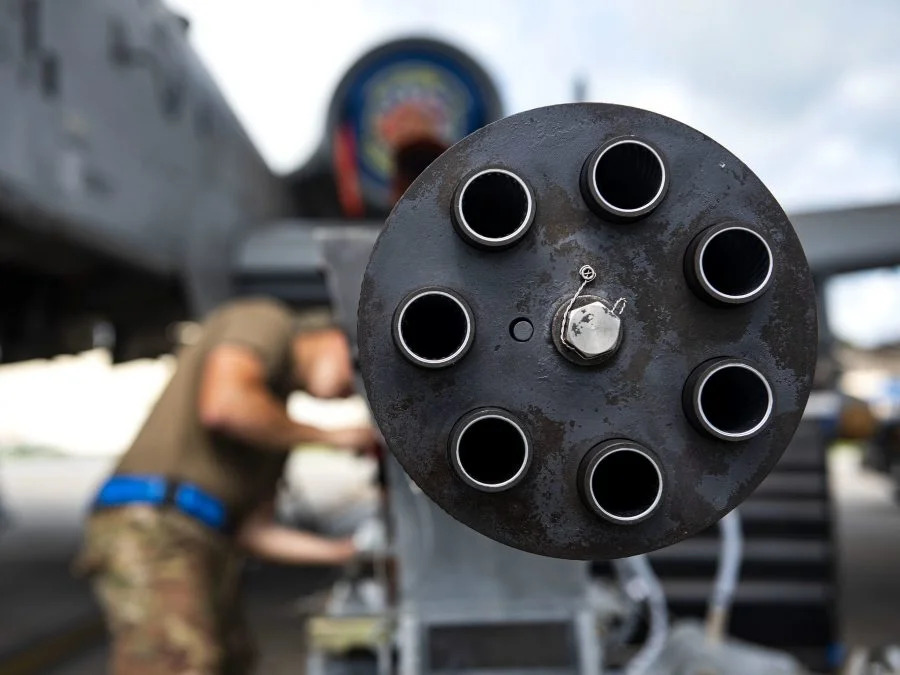
Video: DARPA wants to arms a missile with cannons
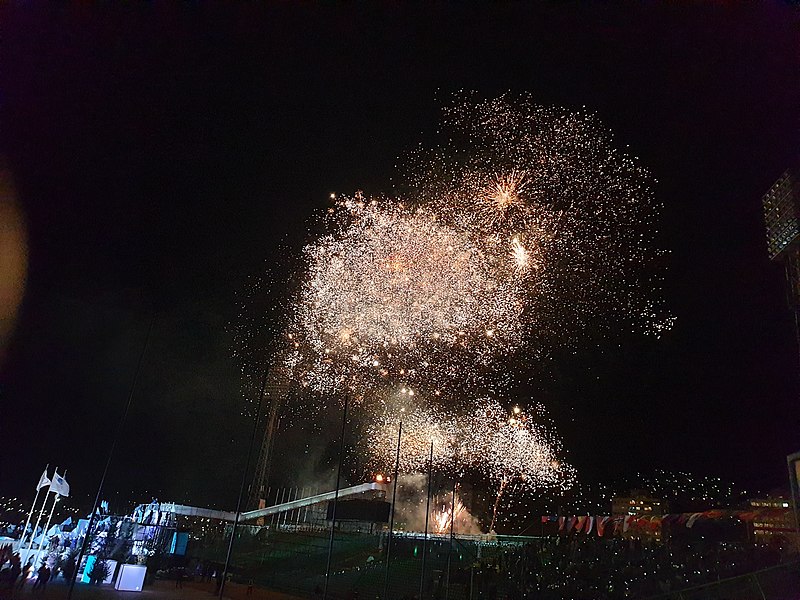
How a Delta Force operator celebrated New Year’s in Bosnia
Sandboxx News
-

‘Sandboxx News’ Trucker Cap
$27.00 Select options This product has multiple variants. The options may be chosen on the product page -

‘AirPower’ Classic Hoodie
$46.00 – $48.00 Select options This product has multiple variants. The options may be chosen on the product page -

‘AirPower’ Golf Rope Hat
$31.00 Select options This product has multiple variants. The options may be chosen on the product page -

‘Sandboxx News’ Dad Hat
$27.00 Select options This product has multiple variants. The options may be chosen on the product page
